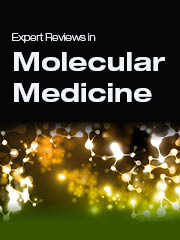Crossref Citations
This article has been cited by the following publications. This list is generated based on data provided by
Crossref.
Erkan, Doruk
and
Lockshin, Michael D
2009.
New approaches for managing antiphospholipid syndrome.
Nature Reviews Rheumatology,
Vol. 5,
Issue. 3,
p.
160.
George, Diane
and
Erkan, Doruk
2009.
Antiphospholipid Syndrome.
Progress in Cardiovascular Diseases,
Vol. 52,
Issue. 2,
p.
115.
Puente, Dolores
Pombo, Gonzalo
and
Forastiero, Ricardo
2009.
Current management of antiphospholipid syndrome-related thrombosis.
Expert Review of Cardiovascular Therapy,
Vol. 7,
Issue. 12,
p.
1551.
Saha, AK
and
D'Cruz, D
2009.
New potential therapies for the treatment of antiphospholipid syndrome.
Expert Opinion on Therapeutic Patents,
Vol. 19,
Issue. 1,
p.
13.
Grossman, Alon
Green, Hefziba
Gafter-Gvili, Anat
Zimra, Yael
Rabizadeh, Esther
and
Krause, Ilan
2010.
Co-existence of paroxysmal nocturnal hemoglobinuria and antiphospholipid syndrome—A role for complement activation.
Leukemia Research,
Vol. 34,
Issue. 9,
p.
e251.
Mehdi, Ali A
Uthman, Imad
and
Khamashta, Munther
2010.
Treatment of antiphospholipid antibody syndrome.
International Journal of Clinical Rheumatology,
Vol. 5,
Issue. 2,
p.
241.
Erkan, Doruk
and
Roubey, Robert A.S.
2010.
Targeted Treatment of the Rheumatic Diseases.
p.
124.
Pierangeli, SS
and
Erkan, D.
2010.
Antiphospholipid syndrome treatment beyond anticoagulation: are we there yet?.
Lupus,
Vol. 19,
Issue. 4,
p.
475.
Mehdi, Ali A.
Uthman, Imad
and
Khamashta, Munther
2010.
Antiphospholipid syndrome: pathogenesis and a window of treatment opportunities in the future.
European Journal of Clinical Investigation,
Vol. 40,
Issue. 5,
p.
451.
Grzybczak, Rafal
Undas, Anetta
Rostoff, Pawel
Gackowski, Andrzej
Czubek, Urszula
Stopyra, Katarzyna
and
Piwowarska, Wieslawa
2010.
Life-threatening cardiac manifestations of primary antiphospholipid syndrome.
Heart and Vessels,
Vol. 25,
Issue. 3,
p.
267.
Pericleous, Charis
and
Ioannou, Yiannis
2010.
New therapeutic targets for the antiphospholipid syndrome.
Expert Opinion on Therapeutic Targets,
Vol. 14,
Issue. 12,
p.
1291.
Willis, Rohan
and
Pierangeli, Silvia S.
2011.
Pathophysiology of the antiphospholipid antibody syndrome.
Autoimmunity Highlights,
Vol. 2,
Issue. 2,
p.
35.
Barbhaiya, Medha
and
Erkan, Doruk
2011.
Primary Thrombosis Prophylaxis in Antiphospholipid Antibody–Positive Patients: Where Do We Stand?.
Current Rheumatology Reports,
Vol. 13,
Issue. 1,
p.
59.
Agmon-Levin, N
Blank, M
Zandman-Goddard, G
Orbach, H
Meroni, P L
Tincani, A
Doria, A
Cervera, R
Miesbach, W
Stojanovich, L
Barak, V
Porat-Katz, B S
Amital, H
and
Shoenfeld, Y
2011.
Vitamin D: an instrumental factor in the anti-phospholipid syndrome by inhibition of tissue factor expression.
Annals of the Rheumatic Diseases,
Vol. 70,
Issue. 1,
p.
145.
Plowman, Emily K.
and
Okun, Michael S.
2011.
Hyperkinetic Movement Disorders.
Vol. 100,
Issue. ,
p.
237.
Erkan, Doruk
Rahman, Anisur
Cohen, Hannah
Machin, Samuel J.
and
Pierangeli, Silvia S.
2012.
Antiphospholipid Syndrome.
p.
261.
Habets, Kim L. L.
Huizinga, Tom W. J.
and
Toes, René E. M.
2013.
Platelets and autoimmunity.
European Journal of Clinical Investigation,
Vol. 43,
Issue. 7,
p.
746.
Saunders, Katherine H.
and
Erkan, Doruk
2013.
Perioperative Management of Patients with Rheumatic Disease.
p.
91.
Alijotas-Reig, J
2013.
Treatment of refractory obstetric antiphospholipid syndrome: the state of the art and new trends in the therapeutic management.
Lupus,
Vol. 22,
Issue. 1,
p.
6.
Barbhaiya, Medha
and
Erkan, Doruk
2013.
Top 10 Clinical Research Developments in Antiphospholipid Syndrome.
Current Rheumatology Reports,
Vol. 15,
Issue. 10,


